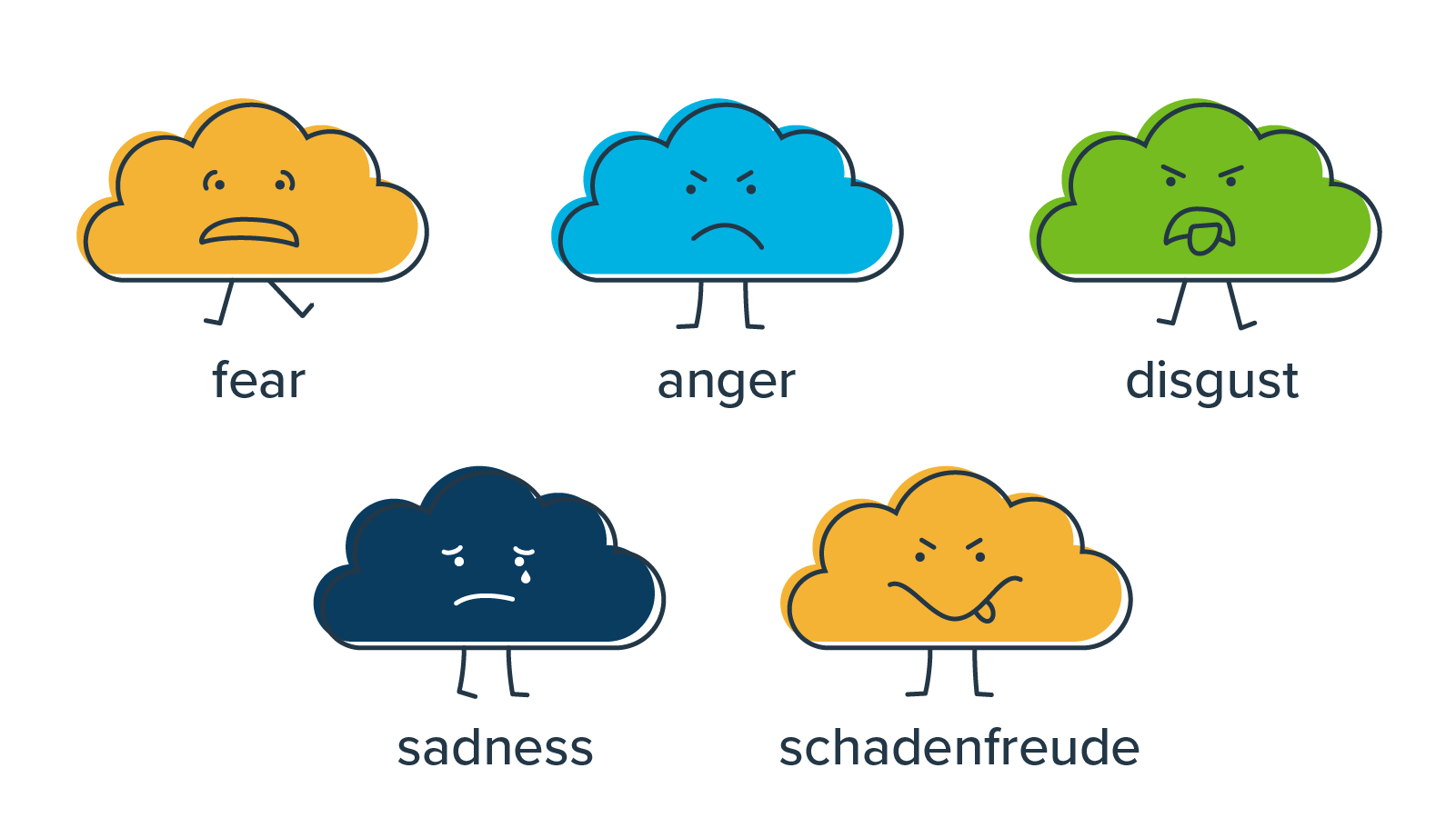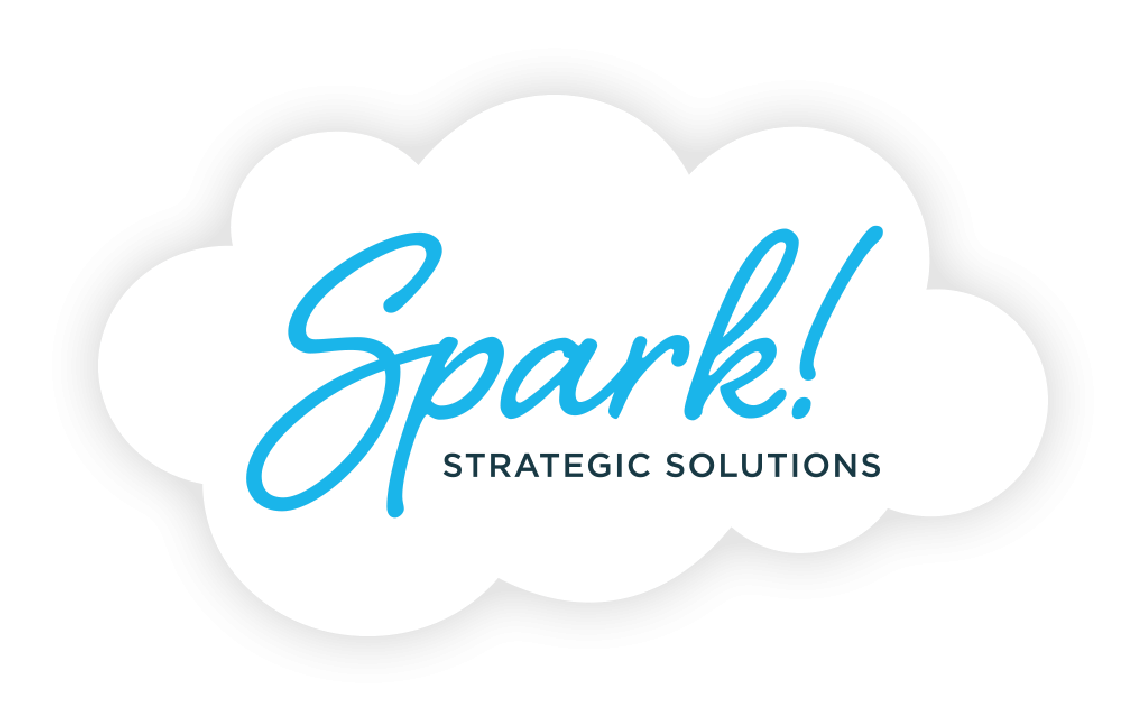
At Spark!, we’ve identified a category of emotions we believe have an adverse effect on personal well-being and community health. What we call F.A.D.S.S.—Fear, Anger, Disgust, Sadness, Schadenfreude—are emotions we’ve been cultivated to gravitate toward because of the drama surrounding them.
None of these emotions need to be avoided necessarily. Actually, these emotions are biological responses that evolved over time to support our survival.
Rather, being able to notice them, name them, and then navigate them while practicing joy—just observing you—can result in the ability to create and move to action.
FEAR
Feelings of fear can range from as mild as simple trepidation to adrenaline-fueled episodes of panic and terror. You know when you feel it. A pit opens in the middle of your chest, you start to sweat and time slows to a crawl.
When left unchecked, fear can lead to avoidant behaviors, undue rumination, and emotional outbursts.
When recognized and harnessed, fear can inspire innovation.
ANGER
Anger starts with annoyance, maybe you’re being distracted by a frustrating noise. But if left unresolved, anger is one of those emotions that builds quietly in the background, leading to bitterness, vengefulness and even fury.
Anger can influence us to do things we may regret. It encourages us to be passive-aggressive toward people we respect, insult others, or act violently.
When recognized and harnessed, anger can be a motivation for change.
DISGUST
Okay, yeah, rotten garbage is disgusting, but that reaction is a good thing. The feelings we should look out for are dislike, repugnance, and loathing.
Allow these feelings to fester, and they may develop into pure, unbridled hatred. This is something we definitely want to avoid. These feelings contribute to dehumanization of others and lead down a dangerous path.
When recognized and harnessed, disgust can help lead to curiosity and inquiry.
SADNESS
We’ve all felt sadness before, and usually this is a natural reaction to losses and tragedies in our lives. But by allowing yourself to dwell in darkness for too long, disappointment turns to hopelessness; which turns to despair and deep anguish.
Feelings of depression can feel inescapable, but can be addressed with help and determination.
When recognized and harnessed, sadness can be overcome by practicing gratitude.
SCHADENFREUDE
A German word adopted into English, Schadenfreude is the enjoyment felt for the misfortune of others. Sometimes this means victory over a rival, or the slapstick comedy of America’s Funniest Home Videos.
What we want to avoid is for this to develop into borderline sadistic enjoyment of others' failures.
When recognized and harnessed, schadenfreude can inform how we can best support and encourage the success and well-being of others. Additionally, it can provide a healthy degree of friendly rivalry that pushes us to improve.
NOW WHAT?
Emotions are a biological response and one of the coolest things that make us humans so… human. As you navigate your day-to-day, we encourage you to take note of what you are feeling. Once you are able to identify and articulate what you are feeling, you may discover that you are better at navigating your responses to certain emotions.
At Spark!, we advocate for choosing to live in joy—just observe you. (See our previous blog post titled "When times are tough, practice joy.") When you take inventory of your emotions, it becomes easier to master and focus on those you want to encourage.
Repressing negative emotions is never a good thing, but by mastering your lizard brain, and living in joy, your actions and the world around you will start to reflect your inner peace.
None of these emotions need to be avoided necessarily. Actually, these emotions are biological responses that evolved over time to support our survival.
Rather, being able to notice them, name them, and then navigate them while practicing joy—just observing you—can result in the ability to create and move to action.
FEAR
Feelings of fear can range from as mild as simple trepidation to adrenaline-fueled episodes of panic and terror. You know when you feel it. A pit opens in the middle of your chest, you start to sweat and time slows to a crawl.
When left unchecked, fear can lead to avoidant behaviors, undue rumination, and emotional outbursts.
When recognized and harnessed, fear can inspire innovation.
ANGER
Anger starts with annoyance, maybe you’re being distracted by a frustrating noise. But if left unresolved, anger is one of those emotions that builds quietly in the background, leading to bitterness, vengefulness and even fury.
Anger can influence us to do things we may regret. It encourages us to be passive-aggressive toward people we respect, insult others, or act violently.
When recognized and harnessed, anger can be a motivation for change.
DISGUST
Okay, yeah, rotten garbage is disgusting, but that reaction is a good thing. The feelings we should look out for are dislike, repugnance, and loathing.
Allow these feelings to fester, and they may develop into pure, unbridled hatred. This is something we definitely want to avoid. These feelings contribute to dehumanization of others and lead down a dangerous path.
When recognized and harnessed, disgust can help lead to curiosity and inquiry.
SADNESS
We’ve all felt sadness before, and usually this is a natural reaction to losses and tragedies in our lives. But by allowing yourself to dwell in darkness for too long, disappointment turns to hopelessness; which turns to despair and deep anguish.
Feelings of depression can feel inescapable, but can be addressed with help and determination.
When recognized and harnessed, sadness can be overcome by practicing gratitude.
SCHADENFREUDE
A German word adopted into English, Schadenfreude is the enjoyment felt for the misfortune of others. Sometimes this means victory over a rival, or the slapstick comedy of America’s Funniest Home Videos.
What we want to avoid is for this to develop into borderline sadistic enjoyment of others' failures.
When recognized and harnessed, schadenfreude can inform how we can best support and encourage the success and well-being of others. Additionally, it can provide a healthy degree of friendly rivalry that pushes us to improve.
NOW WHAT?
Emotions are a biological response and one of the coolest things that make us humans so… human. As you navigate your day-to-day, we encourage you to take note of what you are feeling. Once you are able to identify and articulate what you are feeling, you may discover that you are better at navigating your responses to certain emotions.
At Spark!, we advocate for choosing to live in joy—just observe you. (See our previous blog post titled "When times are tough, practice joy.") When you take inventory of your emotions, it becomes easier to master and focus on those you want to encourage.
Repressing negative emotions is never a good thing, but by mastering your lizard brain, and living in joy, your actions and the world around you will start to reflect your inner peace.


